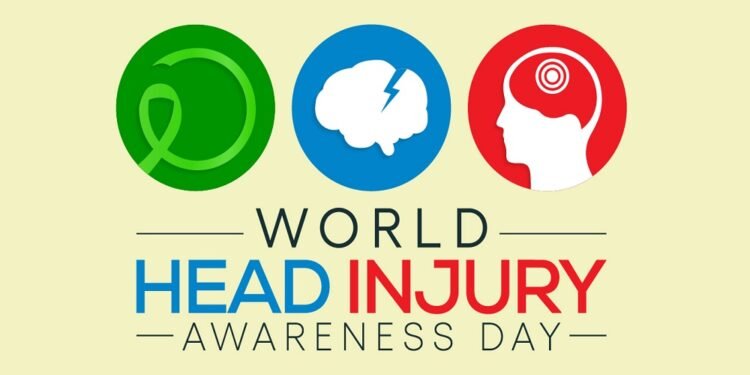The World Head Injury Awareness Day, observed on March 20th every year, serves as a reminder of the importance of preventing accidents and brain injuries. From mild bumps to severe trauma, these injuries can have a significant impact on a person’s life. By advocating for the proper use of safety equipment such as helmets and seat belts, we can greatly reduce the risk of head injuries in various situations.
Globally, over 5% of people experience serious brain injuries each year due to accidents or accidental head bumps. This day aims to educate and raise awareness about how even a minor injury to the brain can affect a person’s quality of life. In South Africa, for example, an estimated 89,000 new traumatic brain injury cases are reported annually, with the three most common causes being motor vehicle accidents, falls, and violence.
A study conducted by Colantonio et al. in 2009 on traumatic brain injuries in the construction industry revealed that falls were the leading cause of injury, followed by being struck by or against an object. The mechanisms and temporal profiles of these injuries varied by age, emphasizing the need for targeted prevention strategies.
It is crucial to understand that brain damage can occur even without the skull being crushed. Even a seemingly minor head injury can result in long-term complications if proper care and treatment are not provided promptly. From memory loss to severe paralysis and even death, the consequences of head injuries can be devastating.
Many individuals are partially or fully paralyzed simply because they neglected to wear a helmet at the time of injury. Protecting our heads is not limited to specific activities; it is a responsibility that applies to various aspects of our lives. Fastening helmets and seat belts while driving significantly reduces the risk of brain and head injuries. Similarly, wearing helmets during sports activities can also help prevent injuries to the brain.
By promoting awareness and encouraging the use of safety equipment, we can make a significant impact on reducing head injuries. It is essential to prioritize our brain’s health and well-being, as it is the most vital part of our central nervous system. Whether it’s wearing a helmet while cycling, using seat belts in vehicles, or taking precautions in any other potentially risky situation, we can all contribute to creating a safer environment for ourselves and others.
Remember, prevention is always better than cure. Let us come together on World Head Injury Awareness Day and make a commitment to protect our most vital organ.



























